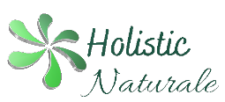What is Vitamin B12 (Cobalamin) ?
Vitamin B12, sometimes referred to as cyanocobalamin or cobalamin, is an essential vitamin which is required by the body for many processes, such as:
- Necessary for the formation of red blood cells as deficiency leads to megaloblastic anaemia.
- Necessary for proper digestion, protein synthesis, absorption of food, and metabolism of fats and carbohydrates.
- Vitamin B12 deficiency in the beginning stages of pregnancy may increase the risk of birth defects, such as neural tube defects. In addition, vitamin B12 is necessary for the proper development of the foetus΄s brain.
- May reduce the risk of macular degeneration which is the main cause of blindness in the elderly.
- May improve mood and reduce the symptoms of depression as it is involved in the manufacture and metabolism of serotonin. This is a neurotransmitter which regulates mood.
- May improve brain health as it maintains the health of the neurones and so prevents brain atrophy. Vitamin B12 deficiency has been associated with memory loss, especially in the elderly.
- May give you an energy boost as it increases the oxygen carrying capacity of the blood.
- May reduce the risk of cardiovascular disease as it reduces the level of the amino acid homocysteine in the blood.
Two steps are involved before the body can absorb vitamin B12 from food. First, hydrochloric acid in the stomach separates vitamin B12 from the protein to which it is attached in food. Vitamin B12 then combines with intrinsic factor (a protein made by the stomach) and is then absorbed by the body. Some people have pernicious anaemia, a condition in which they cannot make intrinsic factor and so have difficulty absorbing vitamin B12 from foods and dietary supplements.
Dietary Sources of Vitamin B12 (or Cobalamin)
Vitamin B12 is found naturally in a wide range of animal foods and is added to some fortified foods. Plant foods contain no vitamin B12 unless they are fortified. Vitamin B12 is found in the following foods:
- Beef liver and shellfish, such as oysters, are the best sources of vitamin B12.
- Fish, meat, eggs, milk, and other dairy products.
- Fortified breakfast cereals and other food products that are fortified with vitamin B12.
How Much Vitamin B12 do I Need?
Adults usually need about 1.5 micrograms of vitamin B12 daily. Most people should be able to get sufficient vitamin B12 from their diet if they eat meat, fish or dairy foods. As vitamin B12 is not found naturally in foods such as fruit, vegetables and grains, vegans may not get sufficient from their diet and may therefore require a supplement.
What happens if I Take Too Much vitamin B12?
Vitamin B12 is a water-soluble vitamin and so excess amounts are excreted in the urine. As a result side effects are not common.
High dose vitamin B12 injections may cause acne, dermatitis (rash) or complications in people with kidney disease. Studies have shown that extremely high blood levels of vitamin B12 in pregnant women may be connected with a higher risk of autism in their children.
Signs of Vitamin B12 Deficiency
Vitamin B12 deficiency may cause megaloblastic anaemia leading to tiredness and weakness. Vitamin B12 deficiency may also cause nerve problems such as peripheral neuropathy (characterised by numbness and tingling in the hands and feet). Other symptoms of vitamin B12 deficiency include loss of appetite and weight loss, problems with balance, depression, confusion, dementia and poor memory.
Large amounts of folic acid can hide a vitamin B12 deficiency by correcting megaloblastic anaemia, a characteristic of vitamin B12 deficiency. Folic acid does not correct the progressive damage to the nervous system that vitamin B12 deficiency also causes. For this reason, healthy adults should not take more than 1,000 mcg of folic acid a day.
High quality Vitamin B12 supplements can be bought here.

